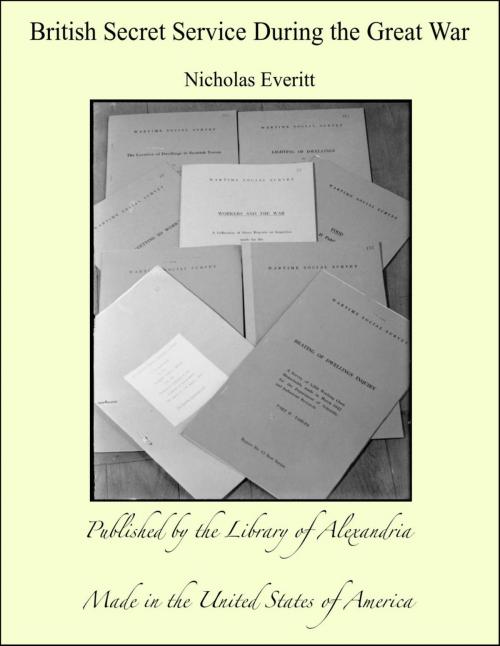British Secret Service During the Great War
Nonfiction, Religion & Spirituality, New Age, History, Fiction & Literature| Author: | Nicholas Everitt | ISBN: | 9781465574107 |
| Publisher: | Library of Alexandria | Publication: | March 8, 2015 |
| Imprint: | Language: | English |
| Author: | Nicholas Everitt |
| ISBN: | 9781465574107 |
| Publisher: | Library of Alexandria |
| Publication: | March 8, 2015 |
| Imprint: | |
| Language: | English |
There is something so mysterious and thrilling about Secret Service that the subject must inevitably appeal to the public, and especially to the more imaginative section of it. Secret Service is the theme of Mr. Nicholas Everitt's book, in which he describes the exciting adventures that he met with whilst in quest of information of use to his country during the Great War. In carrying out his task he proved himself to be a keen observer and a man of resource. His experience gives point to the old saying that a man's ability is shewn less in never getting into a scrape, for humanum est errare, than in knowing how to get out of one! There is perhaps no vocation in which it is easier to get into a tight corner and more difficult to get out again than in the Secret Service, where the sword of Damocles often hangs over one's head. Besides giving an account of his adventures, Mr. Everitt devotes no small part of his work to criticism of the Foreign Office and its overseas branches—the Diplomatic and Consular Services. He draws attention to what he conceives to be their defects and suggests how they might be remedied. While not concurring with everything said by the in regard to politics and politicians, I am sufficiently in agreement with the main features of his book to recommend it to the British Public, because I believe that publicity is the most potent instrument of Reform.
There is something so mysterious and thrilling about Secret Service that the subject must inevitably appeal to the public, and especially to the more imaginative section of it. Secret Service is the theme of Mr. Nicholas Everitt's book, in which he describes the exciting adventures that he met with whilst in quest of information of use to his country during the Great War. In carrying out his task he proved himself to be a keen observer and a man of resource. His experience gives point to the old saying that a man's ability is shewn less in never getting into a scrape, for humanum est errare, than in knowing how to get out of one! There is perhaps no vocation in which it is easier to get into a tight corner and more difficult to get out again than in the Secret Service, where the sword of Damocles often hangs over one's head. Besides giving an account of his adventures, Mr. Everitt devotes no small part of his work to criticism of the Foreign Office and its overseas branches—the Diplomatic and Consular Services. He draws attention to what he conceives to be their defects and suggests how they might be remedied. While not concurring with everything said by the in regard to politics and politicians, I am sufficiently in agreement with the main features of his book to recommend it to the British Public, because I believe that publicity is the most potent instrument of Reform.















